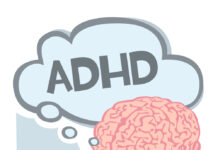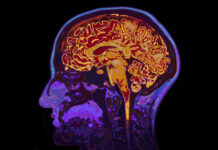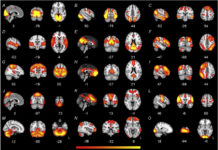I Would Have ADHD, If It Existed
-Matt Walsh insists that he's got ADHD as much as anyone has ADHD, and then makes the argument that ADHD doesn't exist.
The Effect of Psychiatric Diagnosis on Young People’s Sense of Self and Social Identity
A new review highlights the effects that psychiatric diagnosis has on children and adolescents’ social relationships and views of self.
Lancet Psychiatry’s Controversial ADHD Study: Errors, Criticism, and Responses
Amid calls for a retraction, Lancet Psychiatry publishes articles criticizing the original finding and a response from the authors.
An Alternative Perspective on Psychotherapy: It is Not a ‘Cure’
Kev Harding argues against conceptualizations of therapy as a ‘cure’ to an ‘illness’ and instead offers alternative approaches.
New Study Challenges “Late-Onset ADHD”
Researchers found that 95% of adolescents and adults who screened positive for late-onset ADHD did not merit the actual diagnosis.
Researchers Question the Utility of an ADHD Diagnosis
A new article examines the usefulness of the ADHD diagnosis and suggests alternatives
German Psychologists Declare “the Drugs Don’t Work”
Jürgen Margraf and Silvia Schneider, both well-known psychologists at the University of Bochum in Germany, claim that psychotropic drugs are no solution to mental...
Is The Microbiome our Puppeteer?
“My message today is that your state of gut will affect your state of mind. To have a healthy brain, we may need a...
Beyond ADHD: Moving Past the DSM Paradigm of Mental Illness
A paradigm is a way of thinking about things. For the past 60 or so years, our thinking about mental health and illness has been dominated by what can be referred to as the "DSM (Diagnostic and Statistical Manual of Mental Disorders) paradigm." What this looks like in everyday practice is that when a child is referred to my behavioral pediatrics practice for anxiety, the questions that parents, referring doctors, and teachers ask is, "Does he have anxiety disorder?" followed by "How to we manage his behavior?" and "Does he need medication?"
“Sluggish Cognitive Tempo” is the New ADHD
"Some powerful figures in mental health," according to today's New York Times, "are claiming to have identified a new disorder that could vastly expand the...
“The New York Times and the ADHD Epidemic”
-MIA Bloggers Jonathan Leo and Jeffrey Lacasse review the New York Times' history of reporting on ADHD and the ensuing epidemic of ADHD.
“Think Twice Before Using Ritalin on Children as Terrible Side-Effects are Common”
Miriam Stoppard writes an opinion piece on the lack of good research on Ritalin, a drug often used for ADHD, and discusses the latest Cochrane review which found a high percentage of side-effects in children. Despite the lack of quality evidence, “NHS figures show that nearly one million ADHD prescriptions were handed out last year in England – a number that has more than doubled in 10 years.”
Students Sue Oxford University for Mental Health Discrimination
From Express: Catherine Dance, a 24-year-old law graduate, is suing Oxford University's Jesus College for refusing to grant accommodations for her mental health disability and forcing...
Long-term Safety of ADHD Drugs Has Never Been Studied
Even though about 10% of American children have been diagnosed with ADHD and most are taking stimulant medications for it, Boston Children’s Hospital researchers...
Not Another Brick in The Wall
When searching for answers related to mental health, at times it can feel as if one is looking for a door in a brick wall. The task can become even more difficult when a family or individual embraces a diagnosis that seems to define one’s identity permanently.
Lancet Psychiatry Needs to Retract the ADHD-Enigma Study
Lancet Psychiatry, a UK-based medical journal, recently published a study that concluded brain scans showed that individuals diagnosed with ADHD had smaller brains. That conclusion is belied by the study data. The journal needs to retract this study.
UPDATE: Lancet Psychiatry (online) has published letters critical of the study, and the authors' response, and a correction.
ADHD: The Hoax Unravels
At the risk of stating the obvious, ADHD is not an illness. Rather, it is an unreliable and disempowering label for a loose collection of arbitrarily chosen and vaguely defined behaviors. ADHD has been avidly promoted as an illness by pharma-psychiatry for the purpose of selling stimulant drugs. In which endeavor, they have been phenomenally successful, but, as in other areas of psychiatry, the hoax is unraveling.
“‘ADHD: Half Century of Misdiagnosis?’”
The Charlotte Observer announces the September arrival of New York Times writer Allen Schwarz's “ADHD Nation: Children, Doctors, Big Pharma, and the Making of An...
Prenatal Valproate Exposure Linked with ADHD Diagnosis in Children
Children who were exposed to anti-seizure drug valproate in utero were 48% more likely to develop ADHD, according to a new study.
Stimulant Medication Use Linked to Sharp Increase in BMI by Eighth Grade
New evidence suggests that children on ADHD medication may have stunted growth initially but more rapid increases in body mass over time.
Study Finds ADHD Drugs Alter Developing Brain
A new study, published in the JAMA Psychiatry, investigates the effect of stimulant ‘ADHD’ drugs on the brains of children and young adults. The...
“A.D.H.D. Rates Rise Around Globe, but Sympathy Often Lags”
For the New York Times Well blog, Katherine Ellision writes about how the rise in ADHD diagnoses globally is sparking “debates about the validity of the diagnosis and the drugs used to treat it.”
“The Impact of Shift Work on Health”
Medical News Today provides an overview of the research on the effects of shift work on the physical and mental well-being of employees. "Although...
No Brain Connectivity Differences Between Autism, ADHD, and “Typical Development”
Neuroscience researchers find no differences in brain connectivity between children with diagnoses of autism, ADHD, and those with no diagnoses.
Billion Dollar Deals and How They Changed Your World
A new BBC documentary, "Health," investigates the deals struck between health professionals and pharmaceutical companies. The documentary includes an interview with Dr. James Davies, co-founder of the...





















